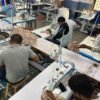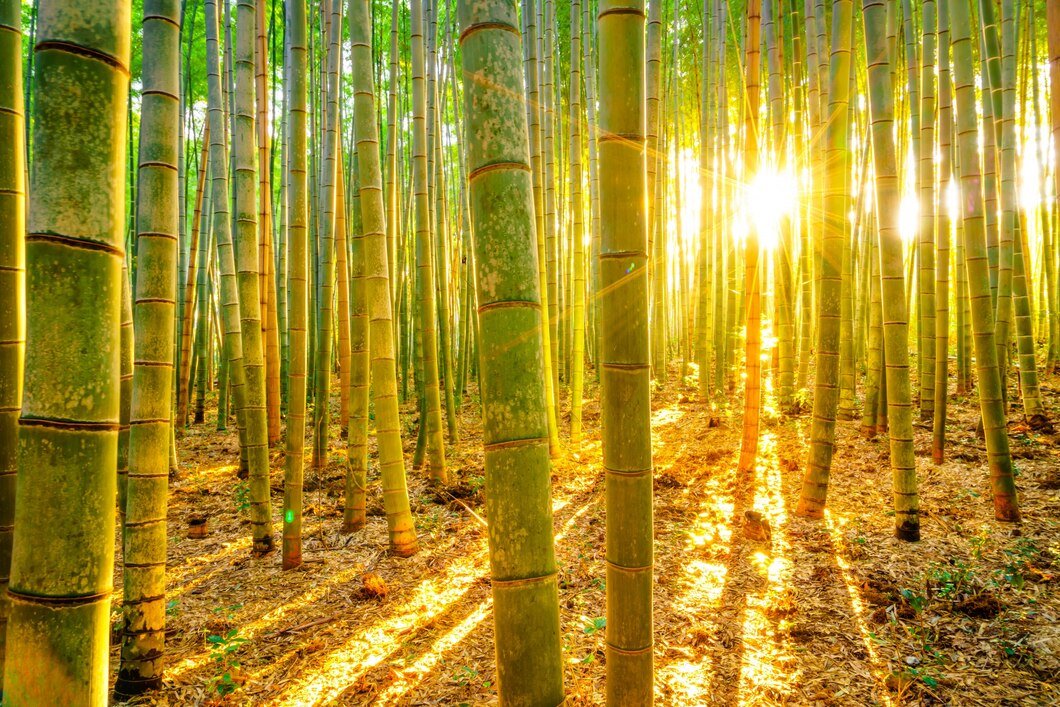The Benefits of Bamboo Fabrics: A Sustainable Shift for Consumers
Introduction In the rapidly changing landscape of fashion, sustainability has become a crucial consideration for consumers. Bamboo, a fabric which is relatively underutilized material in the textile industry, offers a promising solution to the growing environmental concerns associated with conventional fabrics. Despite India being the second-largest producer of bamboo, the adoption and production of bamboo textiles remains surprisingly low. We at Echo Earth want to introduce our consumers the benefits of bamboo fabrics, their sustainability, and why there is a need for a significant shift towards this eco-friendly textile. Why Bamboo Fabrics? 1. Environmental Impact:Bamboo is one of the fastest-growing plants, capable of reaching full maturity in just 3-5 years. Unlike cotton, which requires significant water and pesticide use, bamboo grows naturally without the need for fertilizers or pesticides, making it a highly sustainable crop. The plant also has a unique ability to regenerate after harvesting without needing to be replanted, which contributes to soil health and reduces deforestation. 2. Water Efficiency:As water being the most important resource and we really need to save it as much as we can. Bamboo requires significantly less water compared to conventional crops like cotton. According to a study by the World Wildlife Fund (WWF), producing 1 kilogram of cotton can take up to 20,000 Liters of water. In contrast, bamboo requires only a fraction of this amount, making it a more water-efficient option to the textile and other industries as well. 3. Carbon Sequestration:Bamboo is highly efficient in carbon dioxide absorption and absorbs more CO2 and releases 35% more oxygen than an equivalent stand of trees, contributing to the reduction of greenhouse gases. This characteristic makes bamboo a vital player in combating climate change. 4. Durability and Softness:Bamboo fabric is renowned for its softness, often compared to silk or cashmere. Despite its softness, it is also highly durable and has a longer lifespan than many other fabrics, reducing the need for frequent replacements. This durability translates to a reduced environmental footprint over time and it can be a game changer for the people who are shifting towards fast fashion due to durability concerns. 5. Antibacterial Properties:Bamboo fabric possesses natural antibacterial properties, which can help reduce bad Odor and keeps the fabric fresher for longer period. This is particularly beneficial for garments like undergarments and activewear and other everyday wear. 6. Biodegradability:Bamboo fabric is 100% biodegradable, meaning it can decompose naturally without harming the environment. Unlike synthetic fibers like polyester, which can take hundreds of years to break down and ends up in landfills, bamboo fabric returns to the earth within a few months. The Current Scenario of bamboo textile in India India is the second-largest producer of bamboo globally, accounting for about 30% of the world’s bamboo resources. Despite this, the usage of bamboo in the textile industry remains remarkably low. Several factors contribute to this paradox: 1. Lack of Awareness:One of the primary reasons for the low adoption of bamboo textiles in India is the lack of awareness among consumers and manufacturers. Many people are unaware of the benefits of bamboo fabric, leading to a preference for more conventional materials like cotton and polyester. 2. Limited Manufacturing Infrastructure:The infrastructure required for processing bamboo into fabric is still underdeveloped in India. The majority of bamboo production is directed towards traditional uses such as furniture, paper, and construction materials, leaving the textile sector largely untapped. 3. Market Penetration:Bamboo textiles have not yet penetrated the mainstream Indian market. Most bamboo fabric products are currently marketed as luxury or niche items, limiting their reach to a broader audience. The Need for a Shift Towards Sustainable Fabrics As the environmental impact of the fashion industry becomes more apparent and also it is said that textile industry is the 3rd largest polluter on the planet, there is an urgent need for consumers to shift towards sustainable fabrics, particularly like bamboo and Hemp. The benefits outlined above highlight why bamboo is a superior alternative to conventional fabrics. Here are some additional reasons why this shift is necessary: 1. Supporting Local Industries:India has the potential to become a global leader in bamboo textile production. By increasing the adoption of bamboo fabrics, the country can boost its local industries, create jobs, and reduce reliability on imported materials. 2 Aligning with Global Trends:The global fashion industry is increasingly moving towards sustainable practices. By embracing bamboo textiles, India can align itself with these trends and position itself as a key player in the sustainable fashion movement. Uses of Bamboo in the Textile Industry Bamboo’s versatility extends beyond just fabric. Here are some of the ways bamboo is used in the textile industry: 1. Apparel:Bamboo is commonly used to make a wide range of garments, including t-shirts, dresses, undergarments, and activewear. Its softness, breathability, and antibacterial properties make it ideal for clothing. 2. Home Textiles:It is also used in home textiles such as bed sheets, towels, and curtains. These products benefit from bamboo’s moisture-wicking properties, keeping them dry and fresh for longer periods. 3. Blended Fabrics:Bamboo can be blended with other fibers, such as Hemp, cotton or spandex, to create fabrics that combine the best properties of each material. These blends are often used in fashion-forward garments that require a balance of comfort, durability, and stretch. 4. Industrial Textiles:Bamboo fibers are increasingly being used in industrial textiles, such as automotive interiors and upholstery, due to their durability and eco-friendly nature. Conclusion Bamboo fabrics offer a sustainable alternative to conventional textiles, providing numerous environmental benefits. By increasing awareness, improving infrastructure, and reducing costs, India can harness the full potential of bamboo textiles. For consumers, shifting towards bamboo fabrics is a conscious choice that supports sustainability and contributes to a healthier planet. As the demand for eco-friendly products grows, bamboo textiles are poised to play a crucial role in the future of fashion.





